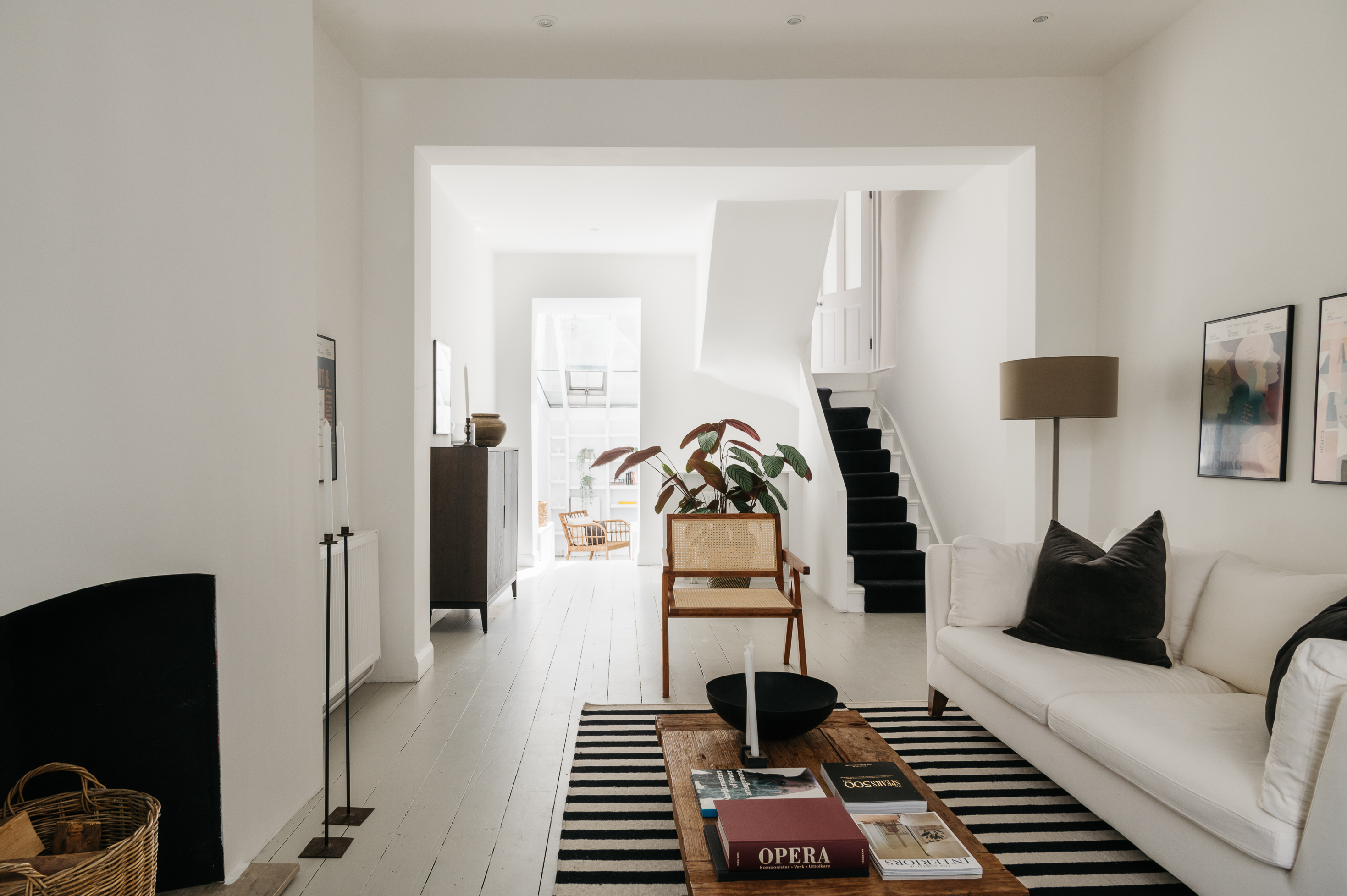The Grand Tour
Entrance is to a vestibule opening to the spacious living room. Light floods the entire ground floor through both east and west aspects, and a full-height canted bay window is set to the front of the room. Rear steps open to a sunroom with an expansive glass mono-pitch roof, and bookcases line the back wall. This space makes a particularly lovely morning room and is currently utilised as a quiet place for reading.
The staircase descends from the living room to the lower-ground floor and the capacious kitchen, dining and snug area. Extending to some 40 ft long, it has an excellent ceiling height and slate tiles running underfoot. The room is wonderfully versatile, accommodating the kitchen at the front, a generous dining area in the middle and a cosy snug to the rear.
The kitchen is mostly set beneath the front garden; glass bricks in the ceiling allow soft natural light to illuminate the space. Steel has been used as a primary material for thick-cut worktops, an 11 ft open shelf, and to clad the walls; white flush cupboards are set underneath and cleverly conceal integrated appliances. A discreet jib door is also encased in steel and leads to a large and useful separate vault.
The principal bedroom suite is positioned on the first floor. A dressing room with plentiful wardrobes lies between the sleeping quarters and the en suite, where there is limestone underfoot and on the vanity unit. There is also a bath with a shower beside the large window; a mirrored glass wall reflects further light into the room. At the rear of this floor is the study, which could be used as further storage space.
The second floor has two further bedrooms. The larger of the two features an original painted Victorian chimneypiece and cast-iron grate; a bathroom encased in bevelled white Edwardian tiles serves both rooms. A smaller room above the study makes for an excellent additional walk-in wardrobe or linen room.
At the apex of the house is a wonderful room, which is currently used as a studio and home office but would make a great bedroom. Quintipartite folding glass doors open to the private west-facing roof terrace, which acts as an outdoor room of sorts in warmer months, providing an incredible vista to the open western skies year-round, perfect for watching sunsets.
Out and About
There are several public parks near Pembridge Villas; the green open spaces of Avondale Park and Holland Park are close, while Kensington Gardens and Hyde Park are a 10-minute walk away.
Local day schools, from nursery through to 18, are excellent and include Wetherby and Pembridge Hall, Chepstow House and Mynors Nursery.
Notting Hill Gate (Central Line) and Ladbroke Grove (Circle and Hammersmith & City lines) are nearby. The Westway provides an easy route out of the city by road for swift access to Heathrow Airport and the southwest.
Council Tax Band: H
